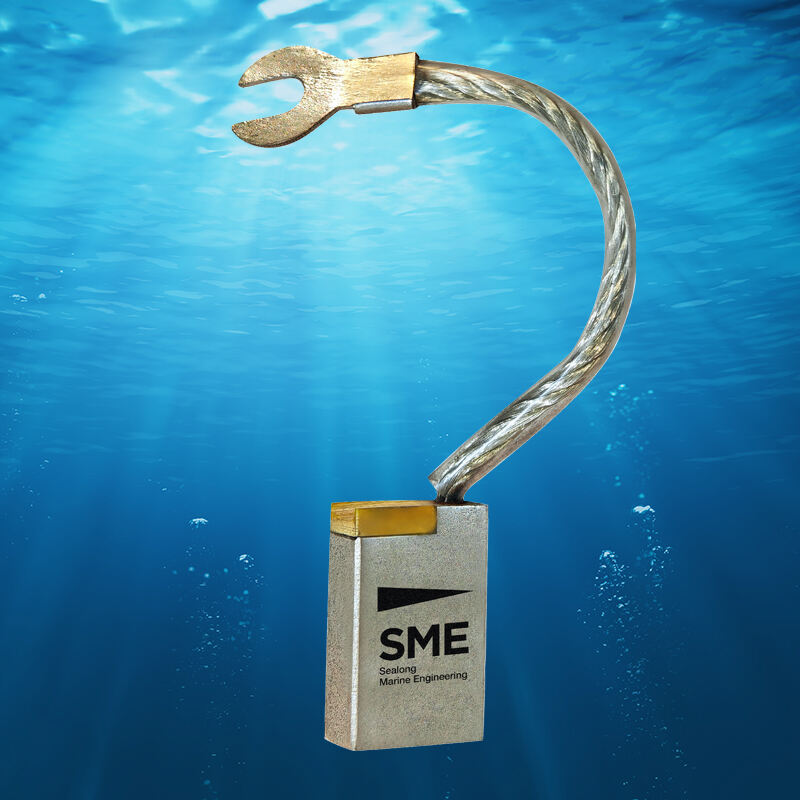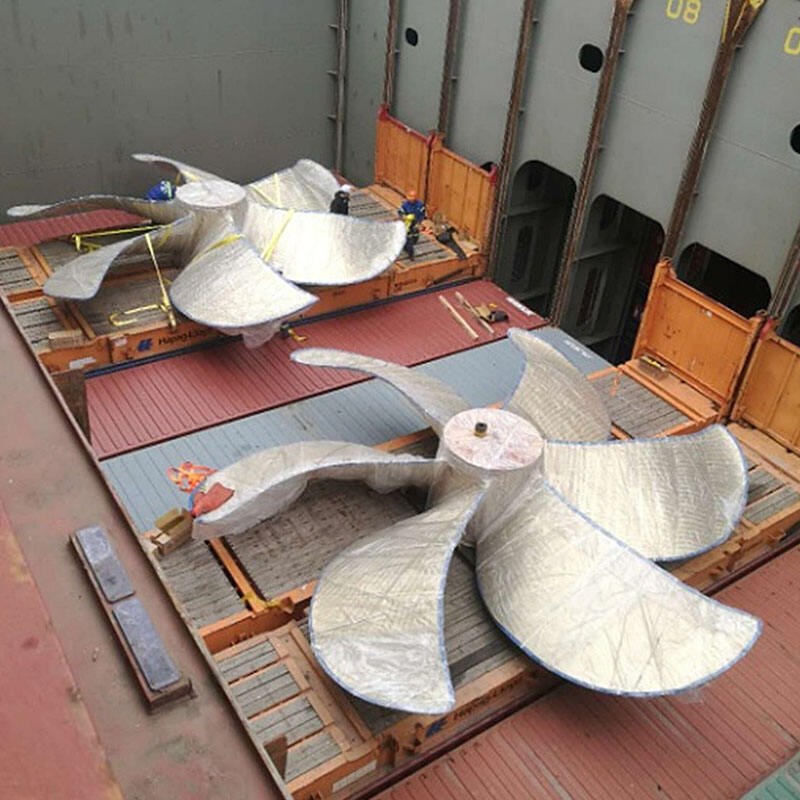For example, a huge ship seems to be very powerful and robust when you see it. A ship with a robust design can help you navigate the rough and sometimes unpredictable sea. This is where the sacrificial anode and impressed current cathodic protection comes into play. Why it is required to have a iccp system on ship and How exactly this works and which part it plays in the overall safety of your vessel, will be explained to you in this article. This information is created by our company, SME, and we are glad to share this knowledge with you.
Sacrificial Anodes are a simple, easy and reasonably inexpensive way to save your ship. Saltwater from the sea wreaks havoc on ship metal. As the ship moves through the water, it creates electricity which can slowly corrode away at the metal of the ship. Galvanic corrosion is the term for this damage. A zinc or aluminium equivalent, a ship sacrificial anode, is meant to do exactly that—to intercept the electrochemical response so that it does not transpire against the steel of your boat. Oh have it act like a shield taking damage for your ship.
This is a huge problem and over time, the patch will eventually fall off due to galvanic corrosion on your ship. It can ultimately weaken the hull — the main body of a ship — and could potentially result to leaks. These leaks can be lethal, especially when you are at the sea and help is not available. A sacrificial anode can also help protect your ship- sacrificing itself in place of the hull. Whereas, the anode is a metal that is more likely to react than the body of the vessel. To put it simple, it is worn down quicker than the hull on the ships. This way the anode will eat all that damage and you keep your ship nice and safe while it sails.

A sacrificial anode works by forming part of an electrical circuit with the hull of the ship. The anode is connected to a wire attached to the hull; it will then function as a sacrificial piece. Saltwater can cause the ship to float on an electrical current. This flow of current causes the anode to "decompose", or wear away more quickly than the hull itself. This is that the anode on the circuit side of things ends up taking all of on toll instead, thereby keeping your ship whole and unharmed. This is why it is called a sacrificial anode — because takes one for the team, safely protecting your hull.

The sacrificial anode is a slendid invention used for your ship. More important, is galvanic corrosion protection of your ship: be protected from this and you can save boatloads of money in repairs and maintenance over the long run. Having an anode can save you a lot of money as fixing corrosion damage is very expensive. Second, votive anodes are much cheaper than the removal of your shipscraps' crust or anything else vital. Lastly, a sacrificial anode is needed that will ensure protection of your ship even in the harshest weather. It means that you can have the peace of mind knowing your ship is secured.

In short, a Ship Sacrificial anode: is A VERY SMALL BUT NECESSARY thing to have in order to prevent your ship from galvanic corrosion. This is connected to the ship's hull by a wire and made of a metal that would corrode away faster than the hull. This design is such that all the damage is taken by the anode and your ship would survive without a scratch. At SME we know if you are in the market for a galvanic or sacrificial anode it is important to have a quality product and that is what we give to our customers.
SME ship sacrificial anode expert Marine Growth Prevention System solutions (MGPS) to guard your vessel's seawater cooling system from harmful biofouling in the marine environment. Our systems are designed and constructed with precision ensuring longevity and low maintenance.SME has decades of marine engineering experience. SME offers all aspects of MGPS service that includes design and installation modifications repairs maintenance and modification. We carry a huge inventory of MGPS spares allowing us to quickly meet your MGPS parts requirements.SME is a reliable partner who is not only dependable MGPS systems but also the experience and resources necessary to keep your system running at its best. This will lower the possibility of costly repairs and downtime due marine biofouling.
SME provides a wide range of maintenance services for ship sacrificial anode (PHEs) to ensure longevity and efficiency. We offer professional cleaning, in-depth inspections tests of pressure and the latest cleaning In Place processes (CIP), which allows for in-line cleaning of equipment without having remove it.With a 5,000-square-meter workshop and a massive $10 million inventory, we're well-equipped to handle projects of all sizes. This massive capacity, coupled with our many years of experience and the latest in service technology will allow us to provide a 12-month warranty on all of our PHE projects.We're dedicated to quality and precision. This helps us minimize risks and increase the lifespan of the heat exchangers you have installed.
SME's ICCP(ship sacrificial anode) systems provide reliable protection against corrosion through advanced technology and decades of industry experience. We are a leading Chinese manufacturer, and we have accumulated experience in handling thousands of vessel projects every year.We provide a full range of ICCP Solutions, including anodes and spare parts. Additionally, SME provides expert modification, repair, and maintenance services to ensure your equipment is running at its peak throughout its lifecycle. In addition, we offer AI systems to analyze log sheets as well as predictive capabilities, delivering precise risk assessments and early warnings to avoid potential problems.SME strives to be more than the scope of your concerns, not just your expectations!
SME is a ship sacrificial anode engineering company in China with a focus on advanced corrosion protection and heat exchanger services and preventive systems for marine growth.SME has decades of expertise in the industry and provides complete solutions that include installation, design and maintenance of ICCP Systems, MGPS and Plate Heat Exchangers. Our 5,000 square meter workshop and inventory of $10 million reflect our massive capacity and commitment to provide high-quality service. Our support for hundreds vessels annually ensures that every project gets benefit from our expertise and the latest technology.At SME we don't just meet your expectations; we exceed them!